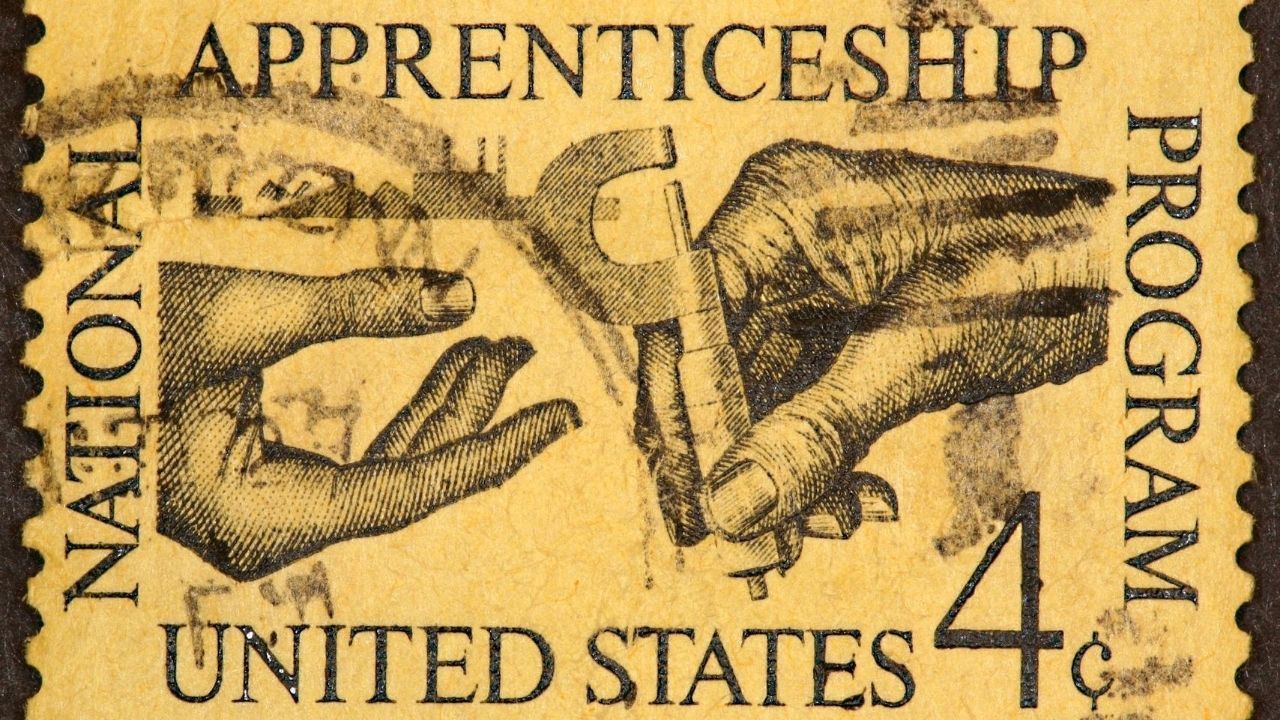Are Apprenticeships A Way Of The Future?

I recently read two books that showcased how well apprenticeships are working in other countries. In Seeing Around Corners: How to Spot Inflection Points in Business Before They Happen, Rita McGrath gives an example of Switzerland, where apprenticeships are common. Seventy percent of ninth graders in Switzerland choose a vocational track instead of pursuing higher education. An apprenticeship is deemed as valuable as a college education for creating a good life. College is reserved for careers that truly need advanced studies, such as medicine, law, and accounting. Because of the high popularity of an apprenticeship model, the youth unemployment rate in Switzerland is a quarter that of the United States and the lowest one in Europe.
In Hit Refresh: The Quest to Rediscover Microsoft's Soul and Imagine a Better Future for Everyone, Satya Nadella talks about higher rates of productivity growth in Germany, which are primarily attributed to their vocational training through apprenticeships. While both Germany and the United States heavily invest in R&D, Germany serves as a great example of a country that productively utilizes its new technologies. Vocational schools have close relationships with industry, allowing apprentices to gain access to cutting-edge technologies.
Both authors agreed that we are at the point where education must be disrupted, and innovation is desperately needed to make sure people have the necessary skills to succeed in the future. As I have mentioned before, education is no longer just for the young. Instead, lifelong learning is needed to upskill employees in order for them to participate in the workforce that heavily relies on emerging technologies, such as AI, mixed reality, and quantum computing.
While it is true that some jobs will be lost to automation, and emerging technologies will disrupt the workforce, the eliminated routine jobs will be replaced by those of different types. Satya Nadella argues, "humans will add value where machines cannot. As we encounter more and more artificial intelligence, real intelligence, real empathy, and real common sense will be scarce. The new jobs will be predicated on knowing how to work with machines, but also on these uniquely human attributes."
So, where does the U.S. stand in embracing the apprenticeship work and education model that has proven to work so well in Switzerland and Germany?
Apprenticeships are not as popular in the U.S. as they are in other countries. In the U.S., we have internships, on the job training programs, school to work programs, and others. Some of them have elements of apprenticeships, but they do not quite fit the exact definition of an apprenticeship. The U.S. Department of Labor defines apprenticeship as "an 'earn and learn' training model that combines work-based learning with related classroom instruction using the highest industry standards."
That said, there has been a push to expand the apprenticeship programs in the U.S., not just for blue collar vocations, where it was typically applied in the past, but also for white collar work. For example, in the financial services industry, the apprenticeship occupations that are in demand are:
- Bank teller
- Claims adjuster
- Insurance underwriter
- Credit coordinator
In the Information Technology industry, the apprenticeship occupations that are in demand are:
- Computer operator
- Computer peripheral equipment operator
- Computer programmer
- Information management
The American Institute for Innovative Apprenticeship (AIIA) was established to expand high-quality apprenticeship programs in the United States. "AIIA believes that a large apprenticeship system can increase youth employment, improve the matching of skills and jobs, lower inequality, enhance skills and productivity, and diversify routes to rewarding careers."
According to the data provided by the U.S. Department of Labor, apprenticeships have grown by 128% since 2009. In 2019, over 633,000 apprentices obtained training while earning wages. Relatively speaking, this is still a very small number. However, if more organizations start to introduce apprenticeship programs, not only will these organizations save money and improve the quality of their talent, but they will also participate in the transformation of the future of work. AIIA observes that "apprentices can gain meaningful work experience, earn a recognized industry credential and potentially earn college credit or even a degree."
